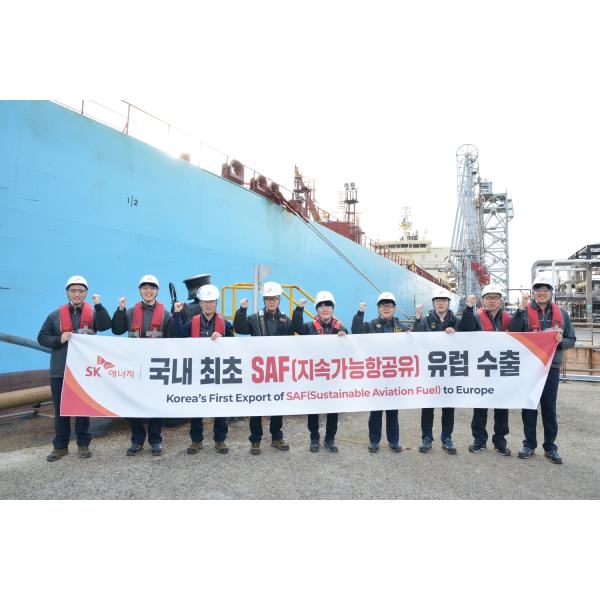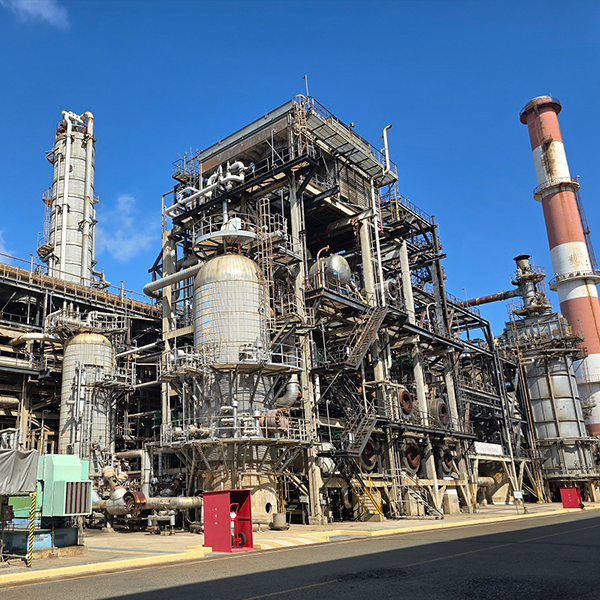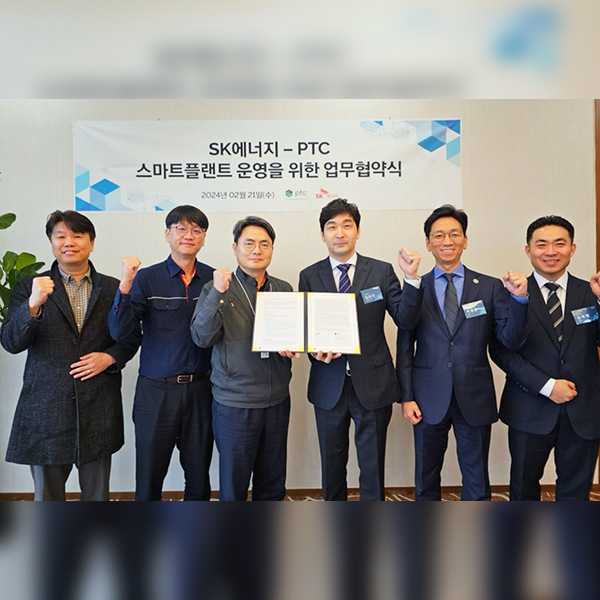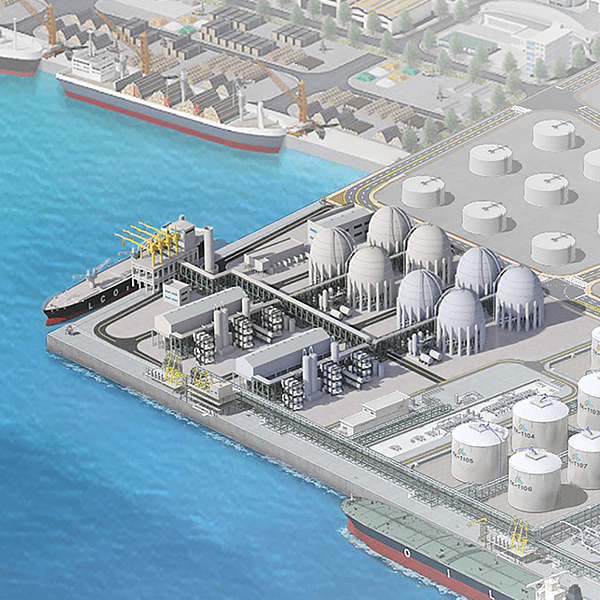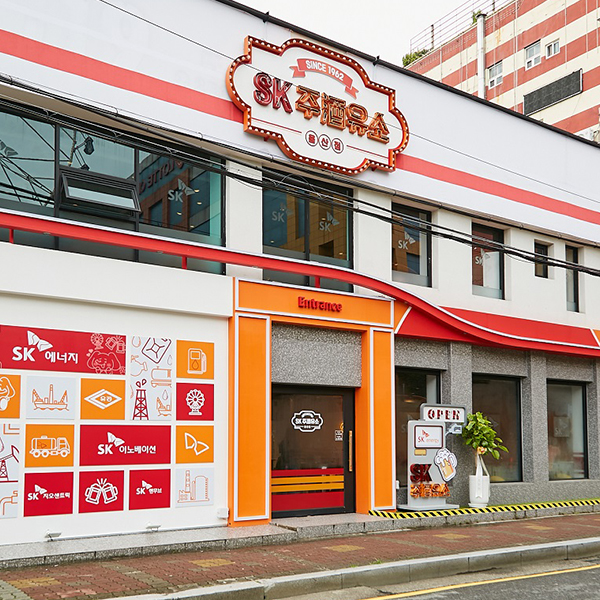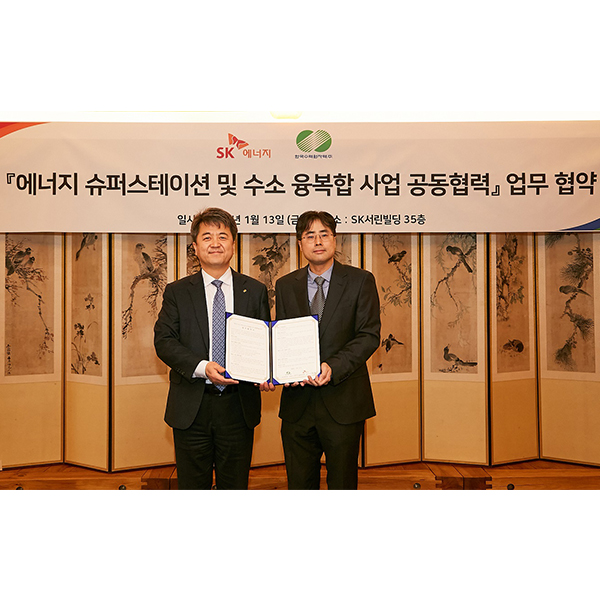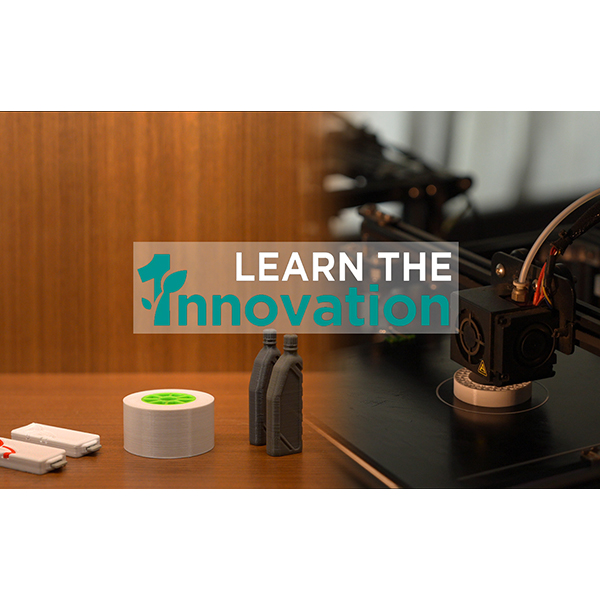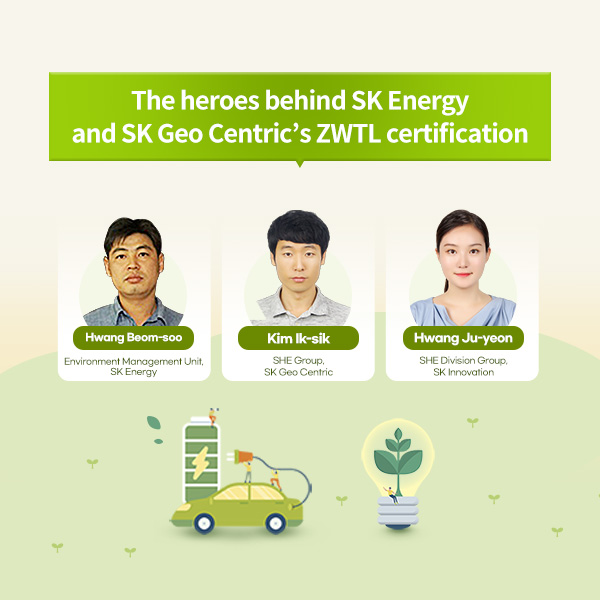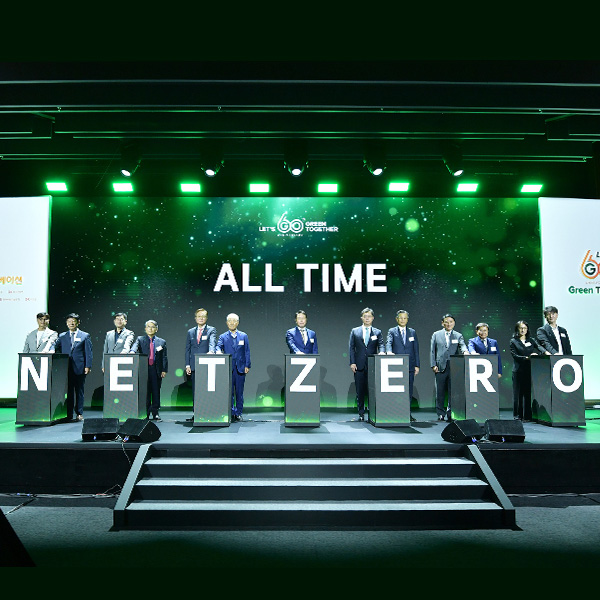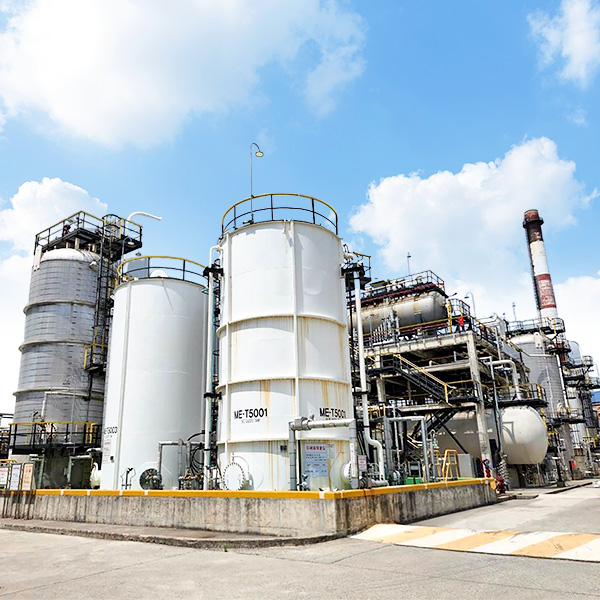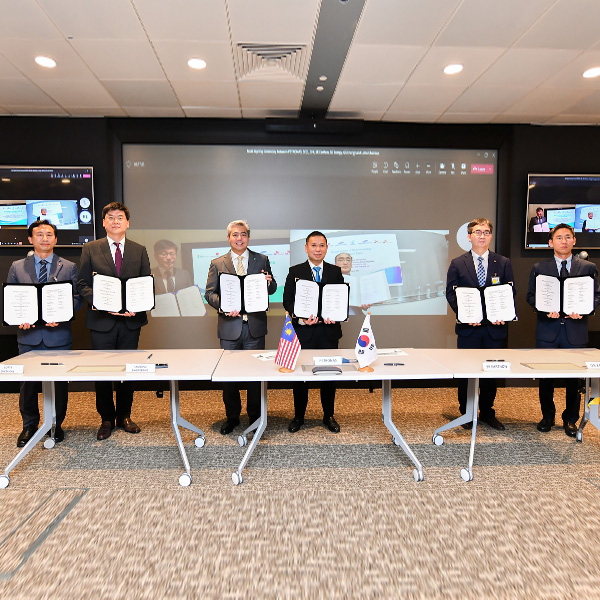 SK Energy
SK Energy■ On April 15th, SK Energy, SK Networks, and Daeho Industries met at Daeho Industries factory in Gwangju to sign an agreement for pyrolysis business by recycling waste tires.
– SK Networks will be in charge of collecting waste tires and improving the supply system.
– Daeho Industries will operate the facilities for waste tire pyrolysis and develop measures to utilize the carbon black.
– SK Energy Refinery & Synergy CIC will be in charge of coming up with ways to produce eco-friendly oil products through refining the pyrolysis oil.
■ The three companies will consider the potential of building and operating a pyrolysis oil factory to create a circular economy that makes use of waste tires.
SK Energy and SK Networks will partner with Korea’s number one recapped tire producer, Daeho Industries to establish a low-carbon circular system that makes use of waste tires.
On April 15 (KST), the three companies made a business agreement at Daeho Industries’ factory located in Hanam Industrial Complex, Gwangju Metropolitan City, South Korea, to push ahead with the waste tire pyrolysis business. President Park Jong-hyuk of Daeho Industries, Hong Jeong-eui, Head of Net Zero Office, SK Energy, and Chang Young-wook, Head of SpeedMate Business, SK Networks represented the respective companies to attend the agreement signing ceremony.
According to the agreeement, the three parties will review the measures to improve the collection and supply system of waste tires in South Korea, and assess the feasibility of the pyrolysis process that creates carbon black(*) and pyrolysis oil.
(*) Carbon black: It is in powder form carbon that is widely used as a filler for rubber goods and tires. This material is normally produced by the incomplete combustion of petroleum or natural gas.
Currently, South Korea sees about 380,000 tons of waste tires (about 30 million tires) every year, and most of them are processed as industrial solid-state fuel, while some are incinerated and reused as fillers and recapped tires.
However, natural rubber, which is one of the main ingredients of waste tires, is recognized as a biogenic resource. This means the companies can create additional values by producing eco-friendly products out of this main ingredient recycled from the waste tires. In particular, given the global trend of encouraging the usage of eco-friendly energy sources, recycled fuel oil that is produced from the waste tires is receiving the limelight for being one of the many alternatives. For this reason, companies across the globe have been actively seeking investments and strategic cooperation regarding waste tires pyrolysis.
The three companies will check the potential of the establishment and operation of a pyrolysis oil plant in consideration of the growth prospect of a circular economy utilizing the waste tires. Moreover, they plan to look further into several other measures to use the pyrolysis oil and the recovered carbon black (rCB) that are produced from pyrolyzing the waste tires.
SK Energy will mainly focus on the ways to produce various products, such as eco-friendly naphtha and air fuel, by additionally refining the pyrolysis oil. Daeho Industries will be in charge of developing various measures to utilize the rCB whose demand is on the rise inside and outside the country. In addition, SK Networks will supply waste tires generated from about 650 business sites of SpeedMate, the company’s total car-care service brand, for the pyrolysis business. It will also create a business system wherein it can co-exist and work together with the existing companies that collect waste tires.
“I am pleased to discuss measures to create a circular economy for recycling waste tires in the country with Daeho Industries, the leading company for recapped tires in Korea,” said Hong Jeong-eui, Head of Net Zero Office, SK Energy. He added, “I hope that this business cooperation will serve as the chance to secure business opportunities for pyrolysis oil from waste tires and eco-friendly products. Also, I hope that we will contribute to accomplishing SK’s goal of Net Zero.”
Chang Young-wook, Head of SpeedMate Business, SK Networks, said, “Up until now, tire recycling only meant cutting them into little pieces or deforming them and using them for other purposes. But now, I look forward to expanding the recycling of tire resources and contributing to cutting down the greenhouse gas emissions.”
Moreover, Park Jong-hyuk, President of Daeho Industries, mentioned, “Once we create a virtuous cycle of resources such as rCB and pyrolysis oil that are acquired from pyrolyzing the waste tires, we expect that we would be able to accomplish the ESG management through creating the social value and establishing the low-carbon society.”
[Photo] On the 15th, (from the left) Hong Jeong-eui, Head of Net Zero Office, SK Energy, Park Jong-hyuk, President of Daeho Industries, and Chang Young-wook, Head of SpeedMate Business, SK Networks, attended the business agreement to promote the waste tire pyrolysis project at Daeho Industries’ Gwangju plant.
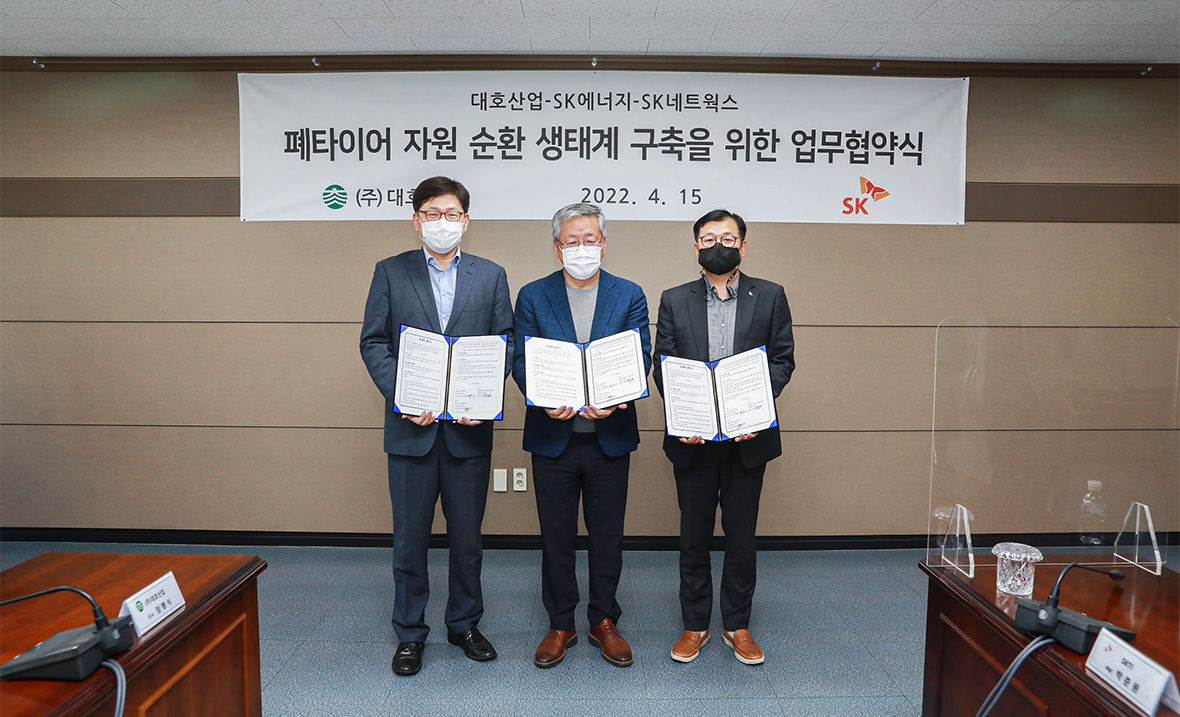










 Youtube
Youtube Facebook
Facebook Instagram
Instagram Linkedin
Linkedin








